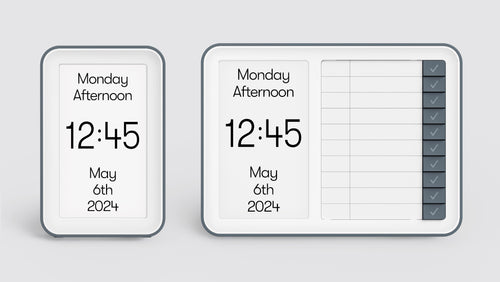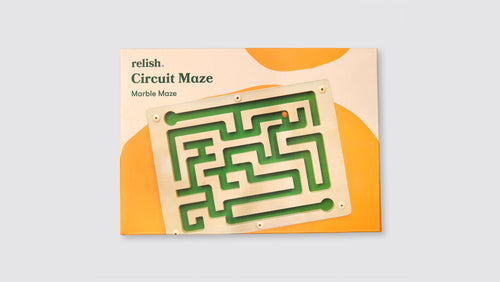For those living with dementia and their caregivers, time perception can often become a challenging hurdle, especially when encountering a condition known as dyschronometria. This article delves into the relationship between time perception and dementia and shines a light on ways to manage it.
What is dyschronometria?
Dyschronometria is the inability to accurately estimate the amount of time that has passed. This can vary from confusing minutes with hours to misjudging the difference between days or even seasons.
What is dyschronometria’s relationship to dementia?
The perception of time is deeply rooted in our short-term memory and cognitive processing, particularly in the temporal lobe, a part of the brain often affected by Alzheimer’s disease and other dementia types. This can make dyschronometria one of the most challenging symptoms a person with dementia might experience.
For a deeper understanding of the topic, you may find it helpful to read this study on subjective time in dementia.
What are the symptoms of dyschronometria?
- Confusion between AM and PM.
- Perceiving short time spans as excessively long or vice versa.
- Difficulty tracking the sequence of events.
- Overestimating or underestimating durations.
- Confusion about days, months, or seasons.
Real-life Examples
Here are some common examples of how time perception issues are experienced by an individual with dementia:
- Waking up in the afternoon, thinking it's morning.
- Waiting for hours but feeling like it's been mere minutes.
- Preparing for an event months ahead, thinking it's imminent.
- Overeating or missing meals due to misjudging meal times.
- Dressing inappropriately for the weather, thinking it's a different season.
- Becoming distressed because a loved one hasn't "visited in years," even if the visit was just last week.
- Starting a nighttime routine during the late afternoon, believing it's much later in the day.
- Repeatedly asking about an event that has already occurred, thinking it's yet to occur.
- Forgetting birthdays or anniversaries because they feel they've just happened recently.
- Becoming anxious in the evening, waiting for a morning appointment they believe is imminent.

What are the causes of dyschronometria in dementia?
There's still much to learn about what causes dyschronometria. However, a combination of factors such as damage to the temporal lobe, dementia progression, and an overall decline in cognitive functions like short-term memory play a role. Changes in the perception of time with age can also amplify these factors, making it crucial to understand how to better interact with and support individuals facing these challenges.
What influence does ageing have on time perception?
Ageing can have a profound impact on our perception of time. While not everyone will experience dyschronometria symptoms as they grow older, there is a universal phenomenon where time seems to pass faster with age. This altered perception, coupled with dementia, can intensify the feelings of time distortion.
Diagnosis and Treatment Approaches
Dyschronometria diagnosis often requires a comprehensive assessment. While there isn't a specific "dyschronometria test," cognitive evaluations and routine checkups help spot the signs. While there's no singular cure, dyschronometria treatments tend to include a combination of therapies, cognitive training, and specialised technologies that can be instrumental in managing the condition.
Practical Tips for Navigating Dyschronometria
For many, understanding dyschronometria is just the first step. Navigating the daily challenges it presents becomes the subsequent journey.
Here are some practical, hands-on strategies to ease the difficulties of distorted time perception and dementia:
1. Maintain Consistent Routines
A structured daily routine can be invaluable. Having set times for meals, activities, and rest can provide a sense of predictability. Over time, this repetition can become an anchor, offering comfort and reducing confusion or distress.
2. Use Visual Aids
Calendars, day clocks, and daily schedules can be immensely helpful. Ensure they are large, easily readable, and placed in frequently visited areas. Some families have found success with visual timelines, using images to depict the sequence of daily events.
3. Consider Technology
Modern tech can be a blessing. Devices like Relish’s Day Hub, a dementia clock with task alerts, can assist in breaking the day into understandable segments. But even simple alarms set on a mobile device or reminders can be effective in guiding the day.
4. Create Time Checkpoints
Establish certain activities or cues that indicate time, like listening to a particular radio show every morning or having a specific snack in the afternoon. These checkpoints can serve as markers, helping to contextualise the day.
5. Communicate and Reassure
If the person with dementia is feeling anxious or stressed about their sense of time, ensure you communicate patiently. Always offer reassurance – your empathy and understanding can be the most comforting tool.
Remember, every person's experience with dementia is unique, so it's essential to remain flexible and find what combination of techniques works best for your situation.
A couple of articles you may find helpful to read include:
- How to establish and stick to a routine to maintain independence
- The best way to communicate with someone with dementia
- Tips for coping with dementia behaviour changes
Relish’s Day Hub can help manage dyschronometria
With the right tools, dyschronometria can be more manageable. Relish’s Day Hub is a one-of-a-kind dementia clock with reminders. Task alerts can be set up to help those grappling with time perception challenges stay in their usual routine.

The Day Hub helps users understand the date and time of day, as well as the tasks they have to complete and the tasks they have already completed during the day. It helps people stay oriented and in control of their daily routine, helping them to stay independent and living at home for longer.
How can the Day Hub help with time perception issues?
-
Unwavering Accuracy: One can always rely on the Day Hub to display the perfect time. Even accidental unplugging or the clocks changing won’t disrupt its accuracy.
-
Customisable Alerts: Customisable alerts act as gentle reminders for daily tasks, ensuring that everything from meals to personal hygiene is taken care of.
-
Adaptive Display: With the user at the core of its design, the Day Hub™ can be tailored to personal preferences. Its HD display, boasting unparalleled contrast and clarity, ensures that even those with visual impairments have a clear view. As the day progresses, the display adapts, dimming according to ambient light levels, proving especially soothing during evenings.
-
Alerts Throughout The House: The Day Hub seamlessly pairs with the Day Connect, ensuring alerts are never missed. This way, even if you're not in the same room as the Day Hub, you’re always in tune with your routine.
-
Thoughtful Design: The Day Hub goes beyond traditional one-off calendar reminders by providing a customised list of daily tasks. The interface is intentionally low-tech, prioritising ease of use.
-
Reassurance & Clarity: Clear flashing reminders and audio alarm alerts ensure tasks are always front and centre.
The Day Hub is a great choice for individuals striving to maintain independence and caregivers wishing for a bit more peace of mind. It provides structure and security in the lives of those touched by dementia.
Stay oriented and in control with Relish’s Day Range
Navigating distorted time perception becomes more manageable with tools like Relish's Day Range. Shop the Relish Day Range today for a reliable companion to help people with dementia keep track of time, manage a routine, and stay independent for longer.















